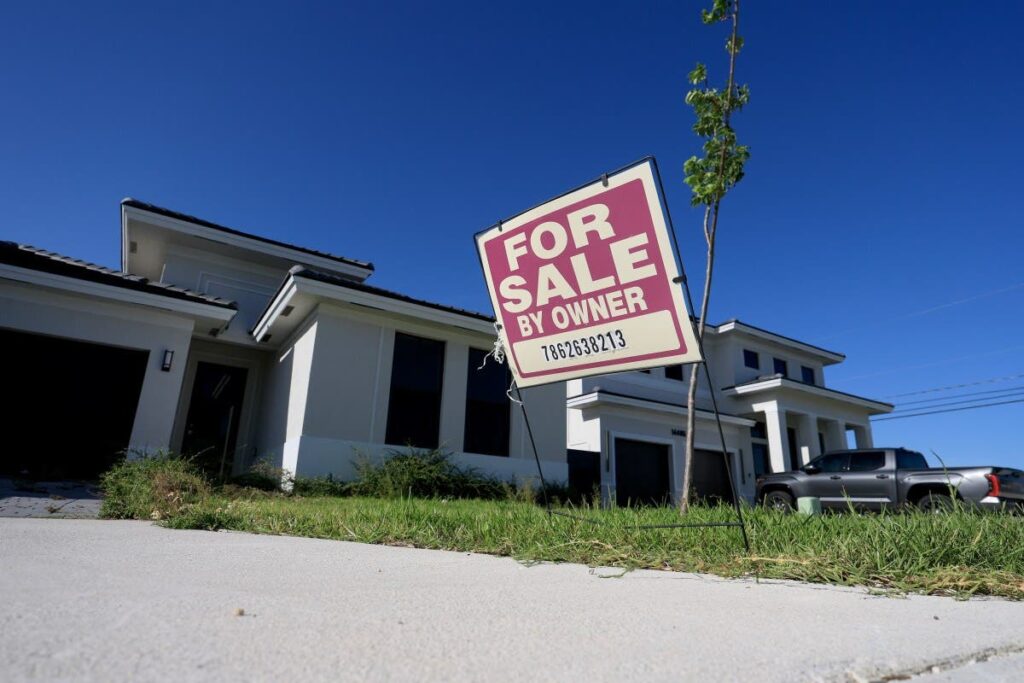Homebuyers in the U.S. housing market are increasingly ‚Äúghosting‚Äù sellers, according to a new report by Redfin which found that 53,000 home-purchase agreements were canceled in September, equal to 15 percent of all homes that went under contract that month.¬Ý
That is up from 13.6 percent a year earlier, showing that more buyers are withdrawing from pending purchases despite the U.S. housing market now being much more buyer-friendly than it was in 2024, and borrowing costs being lower.
‚ÄúThe housing market is proving tough for both buyers and sellers,‚Äù Hannah Jones, senior economic research analyst at Realtor.com, told Newsweek.¬Ý
“Steep costs are squeezing buyers, and sellers are having to compromise more to keep deals alive. These dynamics are driving up cancellation rates and will likely continue to do so until the market finds better balance.”
The Market Has Shifted Toward Buyers—Why Are They Backing Off Deals?
Since the beginning of the year, inventory levels have risen all across the country as a result of new construction projects reaching completion‚Äîparticularly in the South‚Äîmore sellers putting their homes on the market, and demand being stifled by ongoing affordability issues.¬Ý
In September, according to Redfin, there were over 2 million homes for sale nationwide, and the median price of a home was $435,285—up 1.7 percent from a year earlier.
As many of these for-sale homes have piled up on the market without attracting much interest, buyers have gained more options and acquired more negotiating power, pushing sellers in the regions with the highest inventory levels to slash prices and offer other advantages.
These are also the regions where buyers are canceling pending home sales at the highest rates, according to Redfin. Tampa had September‚Äôs highest cancellation rate, with 20.1 percent of home-purchase agreements being canceled, up from 17.7 percent a year earlier.¬Ý
San Antonio, Texas, followed with 19 percent of deals being called off, up from 16.8 percent. Fort Worth and Dallas in Texas, and Orlando, Fort Lauderdale and Jacksonville in Florida were also among the metropolitan areas where cancellations were most common in September.
Jones said that, on the buyers’ side, “payment shock and affordability constraints” are likely driving this increase in deals falling out, while higher inventory levels are making it easier for buyers to walk away and pursue other options.
“Buyers do have more leverage than during the pandemic boom, but that leverage reflects a slower, more uncertain market rather than strong purchasing power,” Jones said. “While mortgage rates have eased modestly, they remain high by historical standards, and home prices have yet to adjust enough to restore true affordability.”
Why Are So Many Sellers In Florida And Texas Being ‘Ghosted’?
Southern markets like Florida and Texas ‚Äúare experiencing higher cancellation rates due to a mix of abundant for-sale inventory, rising insurance premiums, and elevated property taxes,‚Äù Jones said.¬Ý
“Buyers in these markets often face sticker shock when final payment estimates come in, and with plenty of alternative listings available, some choose to walk away.”
Florida and Texas built more new homes than any other state since the pandemic, as developers tried to catch up with the spike in demand that characterized the period between 2020 and 2022. During these years, historically low mortgage rates sparked a homebuying frenzy all across the country, with relatively affordable states like Florida and Texas seeing a boom in new arrivals as remote workers were freed to relocate there.
In September, Florida has roughly 208,000 homes for sale, more than before the pandemic struck, according to Redfin. Texas had over 181,000—again more than before 2019.
While these high levels of inventory have allowed for prices to come down, high home insurance premiums—which are still among the highest in the country—and property tax bills are undermining locals’ homebuying capacity. According to Bankrate data, Florida homeowners pay the third-highest average home insurance premiums in the country, at $5,761 per year.
Among all the cities facing the highest numbers of cancellations in the country there is one that does not belong to Florida or Texas: Riverside, California.¬Ý
But the city, Jones said, “reflects a similar trend, where ongoing affordability challenges are making buyers more cautious and deliberate in their decisions.”
What Will Happen Next?
Jones expects home-purchase agreement cancellations to remain elevated ‚Äúas long as affordability remains strained and buyers have plenty of for-sale alternatives,‚Äù she said.¬Ý
“Should affordability improve, this trend could moderate, tightening overall market conditions once again.”
Read the full interview with Hannah Jones:
Why are homebuyers still backing out of purchases at such a high rate?
The housing market is proving tough for both buyers and sellers. Steep costs are squeezing buyers, and sellers are having to compromise more to keep deals alive. These dynamics are driving up cancellation rates and will likely continue to do so until the market finds better balance.
Aren’t buyers acquiring more leverage over sellers? And what about mortgage rates, shouldn’t lower rates have helped buyers?
On the buyer side, payment shock and affordability constraints likely drive deal fallout, while higher inventory levels make it easier for buyers to walk away and pursue other options.
Buyers do have more leverage than during the pandemic boom, but that leverage reflects a slower, more uncertain market rather than strong purchasing power. While mortgage rates have eased modestly, they remain high by historical standards, and home prices have yet to adjust enough to restore true affordability.
Why are buyers canceling sales at higher rates in the South, especially Florida and Texas?¬Ý
Southern markets like Florida and Texas are experiencing higher cancellation rates due to a mix of abundant for-sale inventory, rising insurance premiums, and elevated property taxes. Buyers in these markets often face sticker shock when final payment estimates come in, and with plenty of alternative listings available, some choose to walk away.
And what is Riverside, California, doing in that mix?
Riverside, California, reflects a similar trend, where ongoing affordability challenges are making buyers more cautious and deliberate in their decisions.
Do you expect buyers to continue ‘ghosting’ sellers at pace?
Contract cancellations are likely to remain elevated as long as affordability remains strained and buyers have plenty of for-sale alternatives. Should affordability improve, this trend could moderate, tightening overall market conditions once again.
Read the full article here














